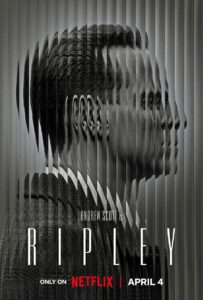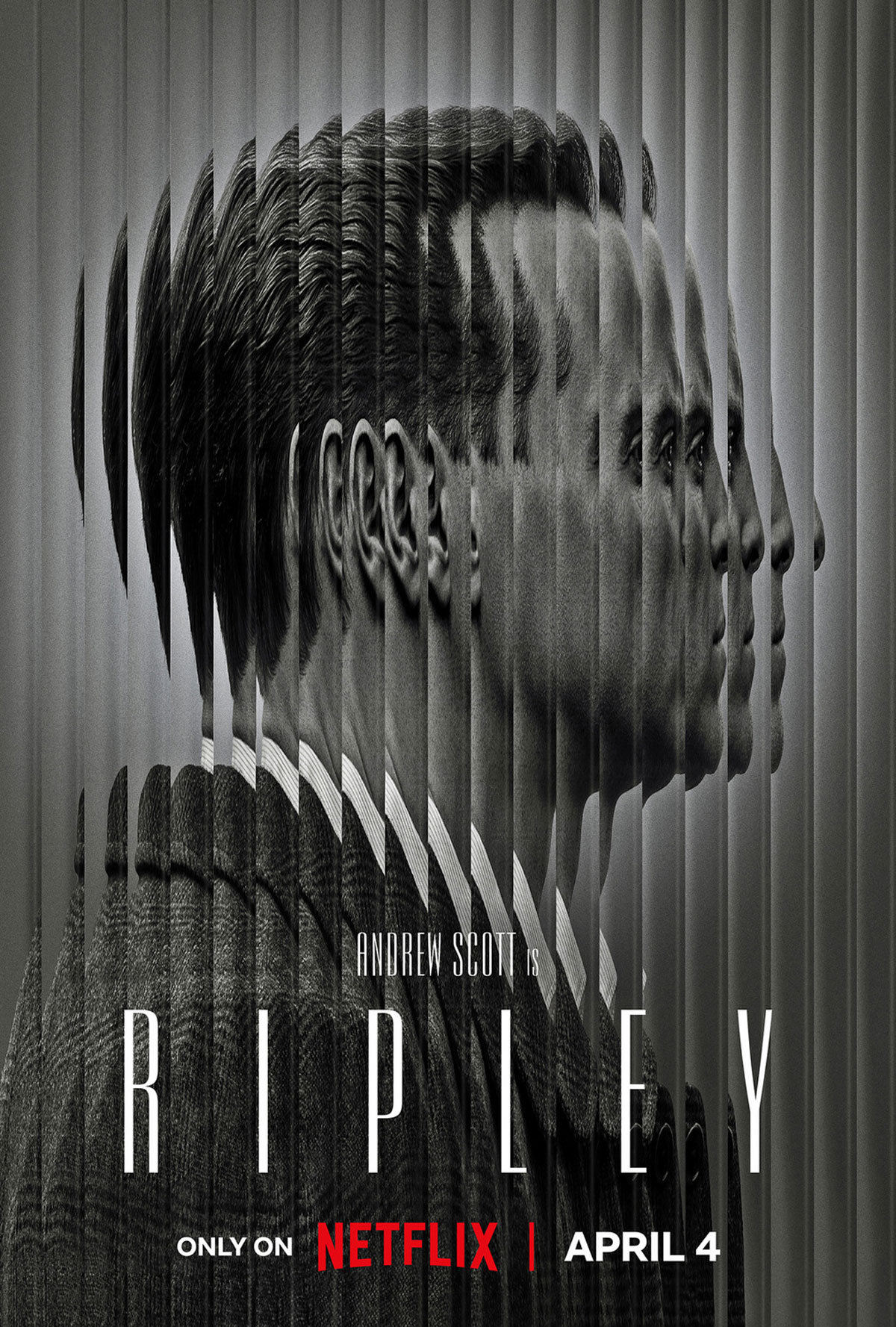
Service: Netflix
Creator: Steven Zaillian
Season Year: 2024
Watch: Netflix
If you predicted a TV show based on the film The Talented Mr. Ripley coming in the year 2024, you win a prize. A very, very small prize. Because everything these days is previous IP. A TV series based on a film that was itself based on a novel. Or, I suppose, this was just based on the novel. But you get the point; nothing new is actually new. But in this case I’m fine with it. Because this isn’t the film. It’s something very different. And that “different” came down to casting, frankly. Where we once had a 29-year-old Matt Damon as Ripley, we now have 47-year-old Andrew Scott. And in place of the world’s most beautiful man, Jude Law, at 27, we now have this dude, 41-year-old Johnny Flynn. This is not your glisten-y, sexually tense version of this story. In fact, there is none of that here. It’s much, much more chaste and regimented. And, in a lot of ways, funny. The vibes, in other words, are night and day.
And, yes, I realize Andrew Scott was the “sexy priest” in Fleabag. But he is way more priest than sexy in this show. Whereas the Tom Ripley character is obsessed with Dickie in the film because he is clearly in love and lust with him, this Ripley is less interested in Dickie the person than Dickie the lifestyle. Of course in this version Dickie is a ne’er-do-well layabout who paints poorly, definitely isn’t out impregnating the locals (like in the film) and barely has the energy to pay attention to his somewhat priggish girlfriend, Marge (Dakota Fanning). In other words, he’s kind of a dud. Not terribly charming and not really anything of note other than the son of a rich guy. So why would Ripley be into him that way? Shit, Tom Ripley himself in this version is not particularly charismatic. Damon’s Ripley had charm and could pull off a micro-mini speedo with aplomb. Scott’s is more of a straight-ahead sociopath who people would definitely look at askance in a social situation. He’s not a chameleon the way the character was originally drawn. He’s kind of pathetic and actually not great at being a criminal. He’s constantly messing up and only getting out of sticky situations because of sheer luck or others’ inability to recognize him for what he clearly is: a low-level scammer.
All of this was an interesting approach to a story that was so horny in its original presentation. So filled with skilled conmen. Beautiful young people. And the saturated colors of Italy. And here we have black and white, older folks, languid pacing and a focus on the painfully detailed minutia of a crime. We spend an entire episode of this hour-long drama watching Ripley try to cover up a murder. And then another one trying to cover up another murder. The second one in almost trolly Family Guy cringey repetition. To the point I believe Ms. Hipster and I looked at each other, smacked out heads and exclaimed, “Oh my god, he’s such an idiot!” Because Ripley does, in committing his crimes, continue to do dumb shit. But everyone around him — Dickie’s father, Marge, the police — are so incredibly clueless, it’s painful. If a dummy like him could pull off his silly antics of appearing as both Tom Ripley and Dickie Greenleaf to the same person without him noticing, we are in stupidland. “Oh, Dickie? Damn, you just missed him!” Walks into the other room. “Oh, Tom? Damn, you just missed him.” And literally all it would take is for someone somewhere to have a photo of one or both of them and the jig would have been up. But, no, nobody thinks to ask for one. And nobody carries a photo of Dickie? Not his dad? Not his girlfriend? Who, by the way, is constantly taking photos and has a bunch on a table in plain view of a cop investigating his disappearance. But never thinks to ask to look at one of them? It’s honestly pretty absurd. But also kind of funny. Which this series can be at times.
The show looks really nice. At first I was a little put off by the black and white because Anthony Minghella’s original film was so vibrant and sun drenched and iconic. But after I got used to it, the shadows and richness of the contrast made it feel classic and classy. It fit the narrative well, with its Hitchcock-like twists and turns. And the very old-fashioned pacing. Which again, once I got used to it, I very much enjoyed. It took its time. So much so I’m sure some would find it bordering on boring. But it was different and cool in its refusal to conform to modern day cut-cut-cut and the media’s constant need to push. I was also a bit out on the casting. These dudes were older than they should be. Again, Johnny Flynn is in his early 40s. What the hell has he been doing for the twenty years since graduating Princeton? Why is his dad back home in NYC treating him like a kid and not a way-grown-ass man who would normally be sending his own kids off to college? It’s nonsense when you think about it. And, frankly, Flynn is kind of a non-entity in the part. Not particularly charming. Kind of odd looking. Definitely not horny. Weird accent. Just a sack of boring, really. His death is almost welcomed. Andrew Scott is better. Still a weird — definitely not NY — accent. And his kind of monotone, non-affect, dead-eyed portrayal is a choice. Which I suppose is how you need to be if you’re going to be a mimic, a cipher, a Zelig of sorts. It’s like, does anyone know what Rich Little’s real personality is like? But he also doesn’t play him like a Zelig. He’s awkward and weird. He doesn’t slip into and out of places and blend. Sure, he seemingly learns Italian in two weeks. And is semi-decent (but not that decent) at forging signatures. But otherwise people kind of look at him askance, and I get the sense most think he’s kind of a frigid douche. Fanning’s performance is a little stilted. She’s underwritten, to be fair. And her character turns out to be almost as craven as Ripley. But in a different way. In some ways a worse way. It’s a bit a of thankless role, honestly. At least Gwyneth got to be stylish and be cheated on by the likes of Jude Law circa 1999. She got to wear bathing suits and frolic. Fanning’s Marge is mostly cloistered in Dickie’s house at the top of a 1000 stairs writing a book nobody wants to read. She’s basically Tom before Tom was Tom. Nobody seems to really be into anyone or anything, and I think that’s the point. It’s all artifice. It’s all not worthwhile. It’s all quite dull. And it’s all just goofy Chekhov’s crystal ashtray. And yet I’m so compelled by all of it.


